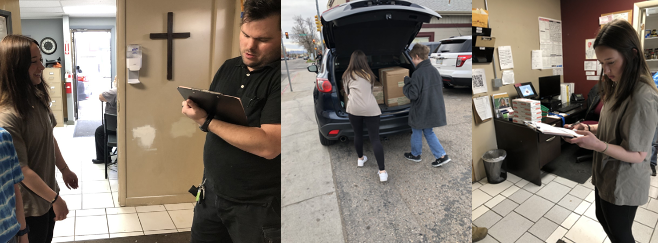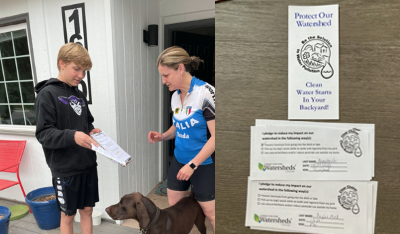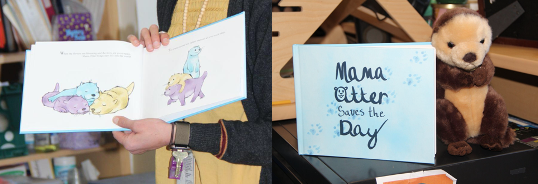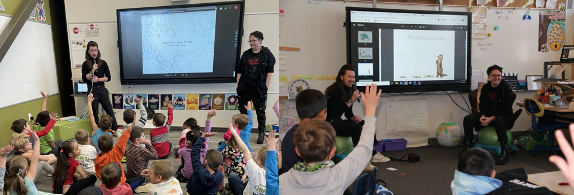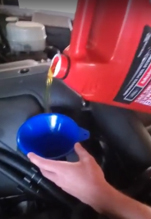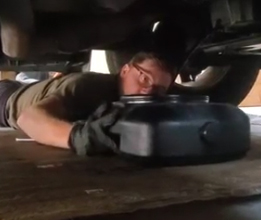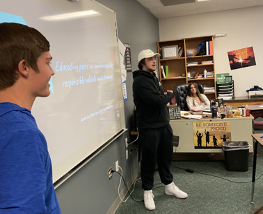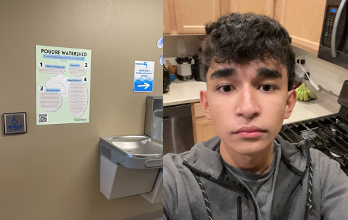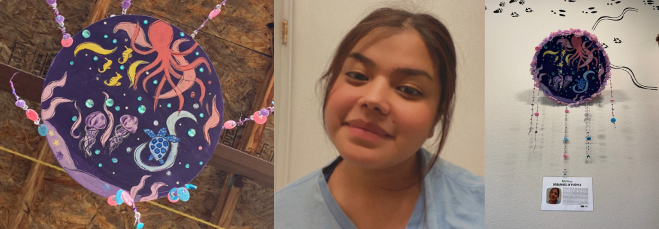Rocky Mountain High School, Fort Collins, Colorado, USA
Sayre Loy and Sophia Jess from Rocky Mountain High School found that water runoff can carry pollutants across watersheds. Through their research, they learned that improper use of pesticides and fertilizers, and improper disposal of waste and toxic chemicals can have major effects on a watershed and the organisms in them. To take action, Sayre and Sophia strategically installed a rain garden at Werner Elementary School on a sunny Saturday afternoon to help filter harmful pollutants in water runoff. To expand their efforts, Sayre and Sophia presented to elementary students on Earth Day to educate them on the benefits of having a rain garden and how they can take action to decrease pollution in their watershed. Sayre and Sophia helped contribute to Targets 4.7 and 6.3 of the Sustainable Development Goals.



